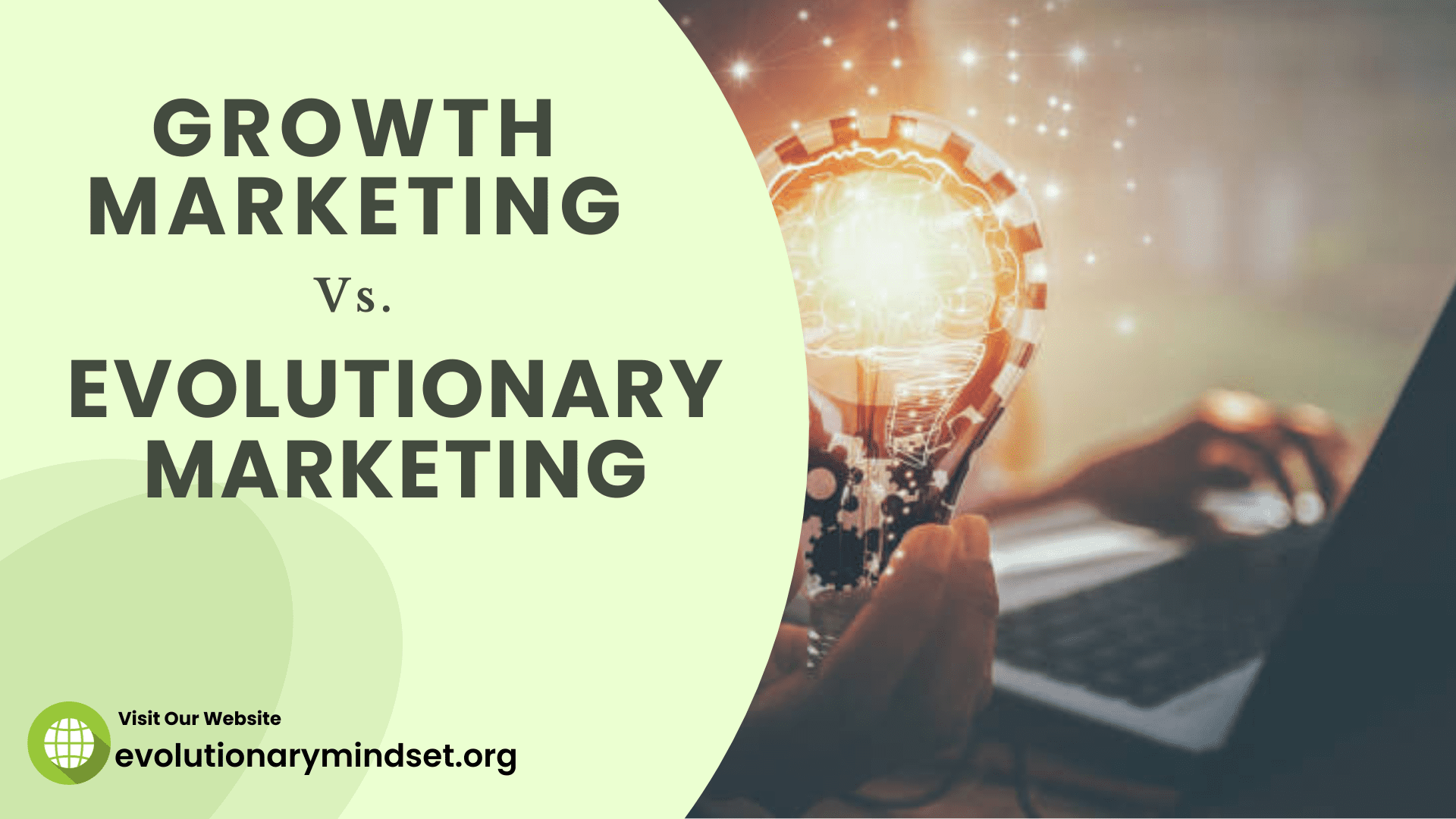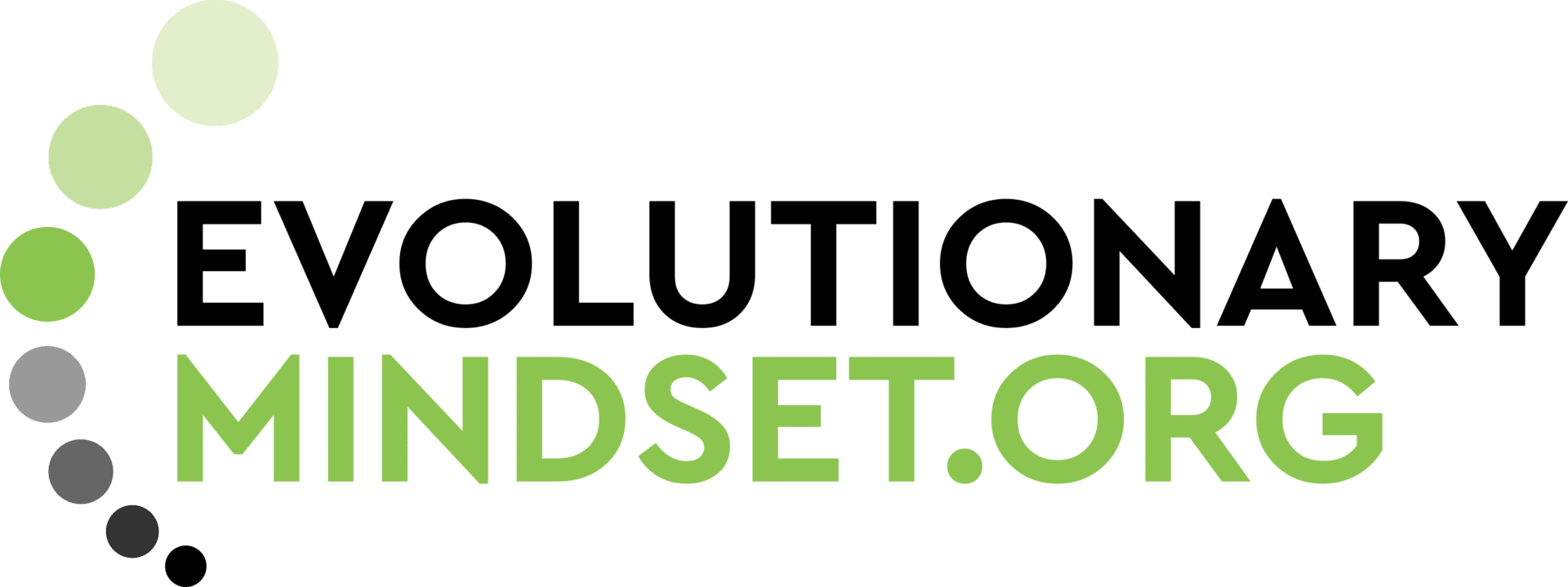
Evolutionary Marketing vs. Growth Marketing: Nurturing Relationships for Long-Term Success
Introduction – Marketing is All About Relationships
Marketing has come a long way from its traditional roots. Today, it’s a dynamic field that constantly evolves to adapt to changing consumer behavior and emerging technologies. Two prominent strategies that have emerged in recent years are Growth Marketing and Evolutionary Marketing. In this blog post, we’ll explore these strategies and how they differ in their approach to building customer relationships and fostering long-term success.
Marketing is not just about selling products or services; it’s about building and nurturing relationships with customers. Evolutionary Marketing emphasizes the importance of authenticity and engagement in creating advocacy and organically growing customer lifetime values. This approach recognizes that establishing lasting connections with customers is a long-term strategy that ultimately pays off.
Definitions: Growth Marketing versus Evolutionary Marketing
Growth Marketing is a data-driven approach that focuses on acquiring and retaining customers. It relies on data from marketing campaigns and experimentation to drive growth. It’s a strategy that anticipates change and plans for constant improvements in marketing tactics.
Evolutionary Marketing considers deep-seated ancestral motives that continue to influence human behavior. These motives include making friends, gaining status, attracting a mate, keeping a mate, protecting ourselves from danger, and caring for offspring. This perspective acknowledges that our evolutionary history shapes our modern behavior and decision-making.
Maslow’s Hierarchy of Human Needs
Maslow’s Hierarchy of Human Needs plays a crucial role in Evolutionary Marketing. This framework explains how basic human needs, from physiological to self-actualization, influence consumer behavior and decision-making.
Underlying all human behavior are neurobiological motives based on the universal wheel of human needs, that have evolved to ensure our survival and well-being. These motives drive consumer choices and brand preferences. By understanding these motives, brands can become more relevant and meaningful to consumers.
Introduction: Evolutionary Marketing
Evolutionary Marketing is a groundbreaking approach to marketing based on the science of evolution that goes beyond emotions and trends to measure the motives that drive consumer behavior.
It behavior, you gain insights into what truly drives your target audience. This understanding goes beyond demographic data and surface-level preferences. It allows you to connect with customers on a deeper, emotional level, catering to their innate desires and needs. By aligning your marketing strategies with these motives, you can create highly personalized and resonant campaigns that foster stronger emotional connections with your audience. This, in turn, leads to better overall relationships, and increased customer loyalty and advocacy, driving sustainable long-term growth as satisfied customers continue to engage over the long term.
Evolutionary marketing offers a more data-driven and scientific approach to decision-making. By measuring and quantifying the motives that make brands desirable, you reduce the haphazardness and subjectivity often associated with marketing decisions. This increased precision allows for more efficient allocation of resources, targeting efforts where they are most likely to yield positive results. As a result, you can optimize your marketing strategies for better return on investment (ROI). Moreover, since evolutionary marketing emphasizes building healthy and reciprocal relationships with customers, you’re more likely to see increased customer lifetime values. This means not only acquiring new customers but also retaining and nurturing existing ones, resulting in a more sustainable and profitable growth trajectory for your business.
Using An Evolutionary Marketing Approach
An Evolutionary Marketing approach is grounded in the science of evolution. It recognizes the shared triadic structure of every living entity and evolving relationship, consisting of (1) a shared vision or believed future scenario, (2) the added value each entity brings to the relationship for it to grow (bigger, better, more…), and (3) the relationship complementation based on shared values, trust, and consistent operating approach.
These three elements, integrated into a functional unity, define the evolutionary science behind every complex adaptive system. Every entity in the universe, including the universe itself, is part of a system that includes these three elements. They are brought into a functional unity by complementation and supplementation laws. This basic structure applies to every person, group, team, company, culture, and country.
Every living entity is an adaptive environment and is in relation to other living entities within the environment. Each relationship shares the triadic structure that further supports Evolutionary Marketing by highlighting the interconnectedness of all living entities and relationships. This framework underscores the importance of nurturing relationships and shared values.
The evolutionary marketing approach requires ethical intelligence, emotional intelligence, conceptual-thinking ability, and an adaptive mindset.
In conclusion, while Growth Marketing focuses on rapid expansion and numbers, Evolutionary Marketing takes a more holistic approach by prioritizing sustainable relationships and understanding the deep-seated motives that drive consumer behavior. In an ever-changing marketing landscape, the choice between these two strategies can significantly impact the long-term success of your brand.
connects various disciplines to quantify the “whys” behind our actions, reducing the randomness and arbitrariness of marketing decisions.
An Example: Coffee and the Motive to Connect
To illustrate Evolutionary Marketing, let’s consider the example of coffee. Coffee shops have successfully tapped into the motive to connect by creating spaces where people can socialize and build relationships, aligning with our evolutionary need for social interaction.
Source: https://www.associationofmbas.com/a-new-science-evolutionary-marketing/
Growth Marketing vs. Evolutionary Marketing
Growth Marketing and Evolutionary Marketing have distinct approaches, whereas Evolutionary Marketing incorporates growth marketing priorities of a data-driven approach, Evolutionary Marketing is based on the science of evolution, understanding individuals’ vision, passion, needs, and motives, and prioritizing relationship-building based on these:
Growth Marketing:
• Prioritizes growth at all costs.
• Obsessed with technology and tools (AI, automation, etc.).
• Focuses on numbers and quantity.
• Seeks to acquire as many customers as quickly as possible.
• Building fast and figuring out loyalty later.
Evolutionary Marketing:
• Prioritizes sustainable growth.
• Values customer relationships over technology.
• Understands customers’ visions, passions, desires, and needs.
• Emphasizes quality over quantity.
• Building healthy and reciprocal relationships focused first on loyalty.
Benefits of Evolutionary Approach, Navigating the Dynamic Marketing Landscape
The marketing landscape is constantly evolving and highly competitive. Though effective, traditional marketing is becoming outdated, and Growth Marketing can be short-sighted. Evolutionary Marketing offers a long-term solution focused on the sustainability of relationships.
One of the key benefits of adopting an evolutionary marketing approach is the deeper understanding it provides about your customers. By delving into the neurobiological motives that influence consumer to delve deeper into Evolutionary Marketing, please join my Evolutionary Marketing digital courses pilot program at www.evolveforgrowth.com or sign up to receive early notice on my Evolve for Growth Book (almost out for distribution) and Evolutionary Marketing (coming soon!).
View the video on Youtube
